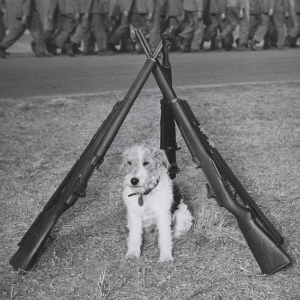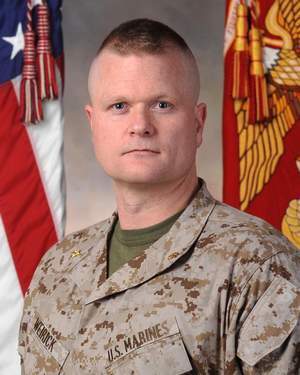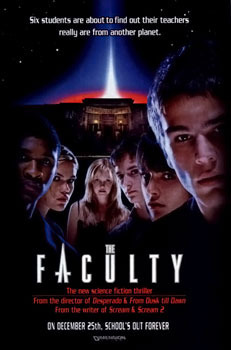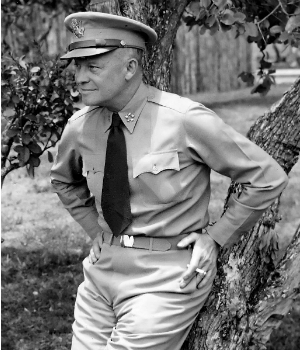Thomas E. Ricks's Blog, page 86
October 4, 2013
Tales of the shutdown (II): What about burden sharing in the profession of arms?

By
Capt.
Brad Hardy, U.S. Army
Best Defense
guest rower
The desk next to me is vacant, the end result of the current
government shutdown. My counterpart, a government civilian, is
furloughed until further notice. This is the second time this year he has been
sent home without pay.
I wonder why him and not me. I am an active-duty servicemember. Congress
and the president have made a special allowance in the absence of a continuing
resolution so that I may be paid regularly. I absolutely feel fortunate and my
wife is breathing a little easier. And I'm sure that the spouses of those deployed
now have one fewer worry on their minds.
But again, what makes me special while my civilian colleague draws the
short stick? Where do we draw the line and force the military, as a piece of
the federal government team, to shoulder at least some of the shutdown burden?
The reason may be that the military, for a number of theories, is a
beatified, protected sect among American society. As such, not funding military
pay checks is bad politics. Few in Washington want to be considered as
anti-military, non-flag waving, unpatriotic, or overly inquisitive of how the
military conducts its business. In general terms, supporting the military, at
least financially, is the undeniable solution even if one finds the policy
objectives murky or the actual conduct of war unnecessary or ham-fisted. And
again, I'm not complaining about my continued compensation. Money is good. So
are groceries. But by holding our place in society to a higher order than those
who serve with commensurate dedication and vigor we may damage the very nature
of what American uniformed service means. Furlough equity should be considered
a part of professional military service.
We should dust off our copies of The Soldier and the State and consider
that familiar phrase "profession of arms." A professional military, which we
consider ourselves almost by dictum, must be under the objective control of
civilian authority. In the American system, we subordinate ourselves to the
civilian government in order to protect it (from us). However, by placing the
military's pay at a higher priority than that of our civilians, we degrade this
image of professionalism, selfless service, or any other tortured application
of the Army Values we evoke to self-separate from society. The military is
lionized and segregated as something monolithically special, elite, almost
mystical and deified. So long as any narrative fits this ideal, most objective
examinations to the contrary are rebuffed.
Consider the example of the WWII veteran "invasion" of their memorial
in Washington, D.C. These vets and their occupation of an otherwise closed
national park was largely applauded in the media despite being threatened with
arrest. I wouldn't besmirch these veterans, just as so many wouldn't either. For
many, their "Honor Flight" and trip to the capital may be the first and last
time to witness the amazing memorial constructed to honor them. However, this
act demonstrates, across generations and wars, just how high the pedestal the
military is placed on. An unlikely but possibly criminal act can be glossed
over as a stand against congressional gridlock and show of red-blooded
patriotism. It's a dangerous, slippery slope. Just as no one wants to see an
elderly man in a wheelchair blocked from his memorial or handcuffed, no one
wants to see today's troops go unpaid.
There may not be an easy solution and one may not be necessary if the
government is turned back on. But the pay caveat to the shutdown episode tells
me that the profession of arms may be a myth, while the warrior class is alive,
well, and paid off before others.
Captain
Brad Hardy is a U.S. Army strategist. The opinions expressed in the article are
solely those of the author and do not reflect those of the U.S. government, the
Department of Defense, or the U.S. Army.
Got a
tale of life
in the trenches of the federal shutdown
that you'd like to share? Send it along to
Best
Defense
by email. The
address is over on the right near the postage stamp-sized photo of Tom where it
says "About This Blog."
Missing that Early Bird?

The Early Bird, in which the Pentagon compiles
most of the day's big military news stories, has not been coming since the
shutdown began. Here's a substitute, the Canadian
military's daily compilation. You see, their
government hasn't been taken hostage by a bunch of right-wing nuts!
Bonus: The compilation is bilingual, which
gives you an opportunity to polish your French. Hinky dinky parley voo?
Guest War Dog of the Week: Why are canines and human beings so fundamentally sympathetic to each other?

My wife read somewhere that dogs are a species
essentially created by man. Under this theory, dogs descend from wolves that
were friendly enough to come near the campfire when thrown a bone, but smart
enough to survive encounters with man. Over many thousand years, those
friendly/smart genes multiplied and created the dog. Just two predators hanging
out.

Above, two members of the 2nd ID hang out in
Buhriz, Iraq, in 2007.
And with that, I am going to stack arms and let
Rebecca take back her column. Here's a photo to think on that.
October 3, 2013
Life during the government shutdown (I): Empty classrooms and a busy football team show what the USNA is really about

By
Bruce Fleming
Best
Defense guest columnist
The halls of the English department at the U.S.
Naval Academy, where I am in my 27th year as a civilian professor, were almost
free of midshipmen students on Tuesday, Oct. l, when I had to go in to sign my
official furlough letter, the one informing me that I was out of work until and
unless the government shutdown ends. The students weren't there because most of
their classes had been cancelled for the foreseeable future. Civilian faculty
were paid until noon, four hours for an "orderly shutdown." Though grim (no pay
with little chance of restitution if the government ever gets going again), it
seemed a bit like a party as well, all of us in weekend shorts and bright
shirts rather than our usual suits and professional attire. But as
non-essential civilian DOD employees, we professors were sent home, while our
students, military and hence unaffected by the shutdown, killed time. We were
told not to assign them other work during the shutdown, not to volunteer to
come in to teach for free, and not to use military instructors to cover for us.
So classes were suspended in mid-stream. In my
plebe Rhetoric and Introduction to Literature class, we'd reached Act II of Othello. It's a play I find essential
for a military academy, about Othello's inability to switch from his "guy"
world of the military, where he has served "in the tented field" since the age
of seven(!), to the new world of Venice, city manners, and women that, hired by
the Venetian senators as a mercenary admiral, he is suddenly thrust into. Now
he's gone and married Desdemona, but his trusted warrior subordinate Iago tells
him she's unfaithful. Othello is insecure (he's old and dark-skinned) and he
believes in the band of brothers rather than his wife. The result is tragedy
for all. Females and too great a reliance on the bros -- what can be more
timely for USNA, racked by sexual assault scandals and toxic SAPR training?
But, hey, Congress thought otherwise. Students
can't do much with only two acts out of five. Worse, all plebes go next week to
see a performance of this play funded by outside sources, the Brady family,
that every year pays to have an event meant to spark discussion of leadership
issues. This funding is non-appropriated, so the show will go on. Only the audience won't have read it or
discussed it. Too, as part of the deal funded by the Brady family, the London
actors of the production were supposed to go into our classrooms during the
week before to discuss and hold workshops. Now there are few classes for them
to go into.
To be sure, not all of our classrooms are dark.
The English Department, like almost all other USNA departments, is
overwhelmingly (more than two-thirds) civilian; these are furloughed. And the
few officers we have, with the exception of the Ph.D. permanent military professor,
are junior officers who typically do not teach upper level courses: However,
whatever they teach goes on. History is about the same proportion of military
instructors to permanent civilians, while mathematics as another example is
only about one-fifth military. Though the academy currently claims that
military make up 44 percent of the faculty, this includes the temporary ensigns
awaiting flight school dates and assigned as helpers to various departments,
frequently physical education. Only the Leadership, Ethics and Law Department,
with loads of professional courses, is overwhelmingly military, officers who
come a few years and move on.
So Annapolis as a college has all but ground to
a halt. In some departments, the military instructors are gathering lecture
halls full of sections without professors and somehow filling the time.
Civilians outside the classroom have been furloughed, too: You can't check
books out of the library or get reference help, the registrar isn't there, the
Academic Center isn't there, and the writing center (take your paper for help)
isn't there -- except for a lone LT once in a while. Almost no professors, a non-functional library,
and no academic support. Yet the weekend football game with Air Force will go
on -- that too is non-appropriated funds, as is the coach's $1.5 million
salary: That's what Annapolis is really about, after all.
Bruce Fleming has been an English Professor
at the U.S. Naval Academy since 1987. He is the author of numerous books and
articles on subjects ranging from literary Modernism and dance to political
theory and military strategy, which are listed at
www.brucefleming.net
.
Got
a tale of life during the federal shutdown that you'd like to share? Send it
along to Best Defense by e-mail. The
address is over on the right near the postage stamp-sized photo of Tom.
Accountability, Gen. Amos? How about doing the right thing by Maj. Weirick?

By
L. Lee
Thweatt
Best
Defense guest columnist
We recently saw General Amos relieve
two of his commanders for failing to protect an airbase in Afghanistan.
He was right to do so, and I'm sure it was difficult to deliver such news to
his colleagues of so many years.
I wonder now, though, if General Amos
has the self-discipline to hold himself accountable, as well, in a matter
involving military justice and what certainly appears to be an orchestrated
effort by the commandant and his top legal advisors to burn and discredit a
Marine Corps officer for filing an inspector general's complaint which exposes
disturbing misconduct at the highest levels of the Marine Corps.
You are by now familiar with sad
episode of Marines urinating on a dead Taliban member in Afghanistan.
Those events were photographed and filmed. The misconduct involved was,
of course, sent to senior Marine Corps commanders for handling and
disposition. Whatever misjudgements committed by the Marines depicted in
those images (and from the photos it appears there were many), they were still
entitled to fair treatment and due process as the appropriate punishments were
considered. After all, some charged with misconduct had been wounded in
combat on multiple occasions, nonetheless re-enlisting to the dangerous and
hard work asked of them and their brethren in faraway lands. Their
commitment to one another continues to amaze. Because we know by now that
Marines do not run across fields of fire to serve notions of baseball, apple
pie, and the American flag. No sir, they do not. Not really.
They do that most of all for one reason: for each other. That is
why they fight: for each other. Even when they do things like this
that we all wish they would not do.
My long-time friend and colleague Major James Weirick was assigned as a
deputy staff judge advocate to help a lieutenant general navigate the
disposition of these difficult cases. In the conduct of that job, to his
chagrin, he ultimately observed and uncovered a pattern from the commandant and
his senior lawyers revealing unlawful command influence, a failure to comply
with legal discovery requirements, and preferential treatment given to the son
of a former commandant while other Marines were placed on legal hold.
Without valid legal justification, the commandant and his senior advisors
refused to turn over documents establishing all of this misconduct. So,
Major Weirick did what he was trained to do, and he spoke truth to power in
order to compel them to comply with the rule of law. Specifically, he filed a complaint
with the inspector general of the Department of Defense detailing their
coordinated efforts to hide what had occurred. After the filing of that
complaint, relevant documents were finally produced, although not without an
effort by the commandant to first have the documents improperly and unlawfully
characterized as "classified" to prevent their disclosure to inquiring criminal
defense attorneys. Additionally, a lieutenant general has signed a sworn
affidavit detailing that the commandant told him to "crush" the Marines
involved in these desecration cases. For years, military appellate courts
have deemed such directives from commanders as "unlawful command influence"
decrying it as the "mortal enemy of military justice." And as well they
should. Nobody, not even and especially the commandant of the Marine
Corps, is permitted to deprive a Marine of due process by seeking
pre-determined outcomes in a military justice setting. No matter the
conduct, fairness must rule the process. Otherwise, it is a sham.
As
a reward for his moral courage, Major Weirick was relieved of his duties, and
yesterday was compared by the commandant's
top civilian attorney (Robert Hogue) to the mentally
unstable mass murderer who killed 12 people recently in the Washington Navy
Yard. I have written the general counsel for the Department of the Navy
in protest. My email to him has the hope of prompting what thus far has been
completely absent from the commandant and his most senior legal advisors:
accountability. The very thing all Marines are taught, and that which, on
this issue, they have themselves avoided and worse, they have now improperly
and wrongly assigned to someone else. It is shameful, and given the
corrosive chilling effect it can have on the ability of junior officers across
all disciplines to speak with candor to senior commanders, I hope it is
something you will look into as you continue to hold military leaders
accountable going forward. Because we all ought to expect that the commandant
of the Marine Corps and his lawyers will serve the rule of law rather than
trample upon it, and hang another Marine out to dry for doing the right thing.
L. Lee Thweatt
is
a
former Marine Corps judge advocate, honorably discharged at the rank of captain,
now in private law practice in Houston. While on active duty, he served
as a trial counsel for various units within the 1st Marine Division at Camp
Pendleton.
'Civilian' faculty in professional military education: Just what does that mean?

By John R.
Schindler and Joan Johnson-Freese
Best Defense guest columnists
One of
the perennial tensions in Professional Military Education (PME) is the role of
civilian faculty at DOD learning institutions. Although all PME institutions
employ civilians to teach, the specific part they play varies widely across
colleges. While our own Naval War College employs a considerable number of
civilians, some NWC teaching departments have few, and there is a spectrum of
"types" within the general category of "civilian professors."
This
issue was highlighted in a recent exchange on Best Defense about the Army's Command and General Staff College
(CGSC) at Fort Leavenworth. Professor Nicholas Murray's commentary revealed how CGSC's schedule is
configured to the detriment of learning, and does not meet the real-world
standards of any respected graduate-level academic program. Murray is a
civilian academic with a Ph.D. in history from Oxford, and it's clear that his
op-ed rankled some feathers in Kansas.
A
response came quickly from Steve Boylan, a retired Army officer
who serves on the CGSC faculty, who maintained that the institution is doing a good deal
better than Prof. Murray had portrayed. While asserting that CGSC is getting
along fine -- everything being "fine" is a common PME refrain -- Boylan made an
odd assertion. He stated that the institution -- which, after all, bills itself
as a college -- isn't really like civilian graduate schools, and perhaps should
not be compared to them, as Prof. Murray had done.
Then
came Boylan's most interesting admission, that the CGSC faculty is "a mix of active-duty officers and civilians (civilians
are usually but not always retired lieutenant colonels and above)," which is
more revealing than he perhaps intended.
All war colleges have, in reality, several categories of faculty:
serving military officers, former military officers now working as civilians,
security practitioners with varying levels of academic training or experience,
and civilians who possess academic qualifications (i.e. a Ph.D. or relevant
terminal degree) and a professional record comparable to academics in civilian
institutions. While there are exceptions, such as retired military officers
with substantive Ph.D.s in the fields they are teaching and/or a strong
research and publication record, they are relatively rare in PME. Given that
Boylan's bio lists no experience teaching in higher education, and no terminal
degree, one wonders his ability to assess the caliber of civilian faculty, much
less how CGSC compares to civilian graduate schools.
Categorizing all non-active duty faculty as "civilian" faculty
poses problems, since many of the "civilian" faculty are such only in a narrow,
HR sense of the term, since they lack minimum qualifications to be teaching in
any graduate-level program, and many undergraduate programs. Clearly, there are
areas of study in PME institutions, perhaps most often in institutions like
CGSC, such as military operations, defense budgeting, and the DOD planning
process, where civilian academic skill sets do not fit the bill and retired
officers fill those niches well. But the proportion of individuals with those
skill sets versus academic credentials becomes important when PME institutions
compare themselves to civilian graduate schools, for the purposes of such
occasions as inspections, including schools such as Yale. There is clearly a
need for the Pentagon to examine what being a "civilian professor" at our war colleges
actually ought to mean.
Relatedly, the matter of tenure enters as a touchy subject
because here, too, there is no standard policy across PME. In the Navy there is
the oddity that both the Naval Academy and the Naval Postgraduate School grant tenure
to accomplished civilian faculty while the Naval War College does not. It
considered a tenure policy a few years ago, and shelved the idea when retired
military faculty objected to tenure qualifications they were unlikely to reach,
but ostensibly is preparing to consider it again. The Air War College has
flip-flopped on a tenure policy in recent years, including once giving
tenure-track faculty the draconian option of giving up their tenure-track
contract, or receiving a one-year contract -- with termination implied. It is
difficult to explain, save in the narrowest HR sense, why some PME institutions
grant tenure and others do not. It's clear that tenure ought to exist at any
institutions that want to bill themselves as being on a par with civilian graduate
schools. Moreover, tenure has a role to play across PME, one that occasionally
bubbles to the surface.
Take the recent case of Bruce Fleming, professor of English at
the Naval Academy. Fleming has been at Annapolis for a quarter-century and has
a well-honed reputation as a gadfly, having written extensively, and not always
in a complimentary fashion, about USNA's educational shortcomings -- something
that, as a tenured professor, he has been free to do. Professor Fleming claimed
that he was denied a raise by the Naval Academy in 2010 after publishing an
unflattering editorial titled "The Academies' March Toward Mediocrity" in the New York Times. That claim was validated
by the U.S. Office of Special Counsel, and the Naval Academy ordered to pay him
a settlement. More recently, Fleming was suspended by the USNA for two days while he was under
investigation when two female midshipmen objected to a poem he used in class.
The case remains under investigation, but Fleming maintains that Academy
leadership is out to remove him, and his own department prevented this. He is
fighting back, again filing a complaint with the U.S. Office of Special
Counsel, accusing USNA leadership of bias and misuse of sexual harassment rules
to suspend him. Regardless of what happens in this matter -- we are staunch
defenders of academic freedom in PME though we have no particular knowledge of
this case nor do we know Prof. Fleming -- it's likely that Prof. Fleming only
still has a job because he is tenured. It's safe to say that at any PME
institution that hires its civilian faculty contractually, like our war colleges,
his contract may not have been renewed, given his history of speaking out
publicly about USNA issues. Though you would like to think otherwise,
individuals like Professor Murray at CGSC sometimes bravely speak out at their
own peril if administrators are thin-skinned and status-quo oriented.
Faculty tenure is important not just so that faculty can speak
out regarding institutional shortcomings, but first and foremost to allow
faculty to challenge students in classrooms without fear that bruised student
egos will result in poor evaluations that can cost them their jobs. It is the
specific job of faculty to challenge students, to make them defend their views,
and challenge them with new, sometimes uncomfortable perspectives.
Administrative fears ought not to be allowed to interfere with what is best for
the students and therefore for the nation, which is a real consideration given
PME's mission of educating our military leaders.
Does the Pentagon want its PME institutions, especially its war
colleges, to be comparable to civilian graduate programs, as it says it does?
If that's the case, it would be wise to better define who exactly are "civilian
professors," as well as the hiring and retention rules they are employed under.
Given that all PME institutions report to the Pentagon, these rules ought to be
the same across the board as well. These would be excellent steps toward making
PME better for its students and for the nation, across the board.
Joan Johnson-Freese is a professor of national security affairs, and
former department chair, at the Naval War College in Newport, RI, and authored
the 2013 book
Educating America's Military
. John R. Schindler is a professor
of national security affairs at the Naval War College and a fellow of the International
History Institute at Boston University. The views expressed in this article are
those of the authors alone and not of the Naval War College, the Department of
Defense, or the U.S. government.
October 2, 2013
Losing trust in superiors: Some possible fallout from the drawdown

By Major Chris Heatherly, U.S. Army
Best Defense guest columnist
England. June 5, 1944: Allied troops were poised to invade
Europe and defeat Nazi Germany. General Dwight Eisenhower, the supreme
commander of Allied forces, wrote a simple, one-page letter clearly
articulating the importance of their mission and his confidence of their
victory in battle. Eisenhower directed his staff to provide a copy of this
letter to every Allied servicemember taking part in D-Day.
Fast-forward
some sixty years to Operation Iraqi Freedom in Baghdad, Iraq, during the spring
of 2004. The 1st Cavalry Division had just relieved the 1st Armored Division
and the latter was in the midst of the long journey home through Kuwait to
Germany. The tactical situation changed rapidly, requiring 1st Armored Division
to cease redeployment operations and return to combat. The division's
commanding general, then Major General Martin Dempsey (now chairman of the
Joint Chiefs), issued a similar letter to his soldiers. Perhaps recalling
Eisenhower's example during WWII, General Dempsey once again clearly and
concisely explained why his division would remain in Iraq an additional 90 days
beyond its planned departure. Additionally, General Dempsey called a group
meeting of his subordinate commanders to personally explain the logic behind
the division's recall and his plan to eventually redeploy home. I was present
at that meeting, and still have my copy of General Dempsey's letter. There was
no doubt in my mind as to the importance of our unit's extension or his
commitment to our eventual redeployment.
Today,
senior U.S. military leaders face another difficult battle, albeit one of
budgets, ledgers, and accountants instead of improvised explosive devices,
artillery shells, and bullets. Each uniformed service will reduce its personnel
end strength, although exact numbers remain uncertain. The Air Force's
anticipated loss is around 9,000 airmen, while the Navy and Marines stand to
lose 1,700 and 15,000 more, respectively. General Ray Odierno, the Army chief
of staff, stated the Army will lose at least 80,000 soldiers over the next four
years with the possibility of additional manpower reductions of 100,000 or
greater. General Odierno did not mince words on the possibility of a drawdown, saying:
"Let there be no mistake, aggregate reductions WILL TAKE PLACE. The money is
gone; our mission now is to determine how best to allocate these cuts while
maintaining readiness. We expect Army leaders, military and civilian, to seize
this opportunity to re-shape our Army. This effort will take PRIORITY OVER ALL
other Headquarters, Department of the Army activities."
To
achieve these reductions, the Army publically announced new rounds of Selective
Early Retirement Boards (SERB), Qualitative Management Programs (QMP), and
Qualitative Service Programs (QSP) for officers and NCOs alike. For example, a
SERB in August reviewed nearly 1,200 Army colonels and lieutenant colonels for
early retirement. General Odierno ordered every colonel affected by this SERB
be personally counseled by a lieutenant general. My concern, however, is the
Army will not demonstrate the same hands-on approach when informing junior
officers and NCOs their service is no longer required. As an institution, the
Army must look beyond the immediate need to reduce personnel now and consider
the long-term consequences of a poorly considered or executed drawdown plan.
Simply stated, Army leaders must clearly explain to each departing soldier why
they are being forced out regardless of rank, rationale, or reason.
Any
decision on personnel reductions must consider the following facts. A
significant portion of our soldiers are already distrustful of "Big Army." A
2012 Center for Army Leadership survey found that nearly 50 percent of the
active and reserve soldiers polled believe "the Army no longer
demonstrates that it is committed to me as much as it expects me to be
committed." Of even greater worry is how this number has increased by 6 percent
since the previous survey in 2010. Given the forthcoming reductions, this number
will likely surpass the 50 percent mark by 2014. Separately, soldiers mustered from the Army may have fewer
than 20 years of service, and thus no retirement benefits such as a pension,
commissary access, or healthcare. Similarly, they will not enjoy the "golden
parachutes" afforded to senior officers who may easily step into lucrative,
high-paying jobs with private industry think tanks, lobbying organizations, or
corporate America. Of additional concern is the state of the American economy,
which is not as strong as it was during the last major drawdown following
Desert Storm/Desert Shield. As of this writing, American unemployment stands at
nearly 8 percent, with veteran unemployment rates slightly less.
While the military is not responsible for the state of the economy, departing
soldiers still face its associated difficulties. Military leaders must also
account for the lack of military experience among U.S. citizens today with less
than 1 percent of America in uniform and approximately 10 percent holding
veteran status. The average American citizen is not informed on the details and
particulars of the military in general, and the drawdown in particular. While
Americans hold great respect for the military, they lack direct and frequent
interaction with soldiers, sailors, airmen, and Marines. The contact gap
between soldier and society means one disgruntled veteran can have a
disproportionate impact on future recruits. Recruiting America's youth to
enlist in the military is a difficult task in the best of circumstances, a
situation made worse if the Pentagon fumbles the pending drawdown.
I urge
the General Odierno and other senior Army leaders to follow the examples of
Generals Dempsey and Eisenhower to clearly explain how this reduction will work
and the criteria employed by boards selecting soldiers for drawing down.
Further, I recommend the Army chief of staff order senior commanders to conduct
direct in-person, face-to-face exit counseling for every soldier mustered from
the service.
Such
counseling must be taken seriously and not simply "pencil whipped" as so much
rater counseling is often done. Leaders may assist soldiers to develop
realistic exit strategies to ensure veterans secure follow-on employment and
access to post-service benefits. Leaders should address the potential for
continued public service with the National Guard, Army Reserves, or
non-uniformed programs such as Troops to Teachers. The military faces fiscal
realities beyond our control requiring difficult choices directly impacting soldiers
and their families. That reality does not absolve Army leaders from the
obligation to look each soldier in the eye, respectfully thank them for their
service, and dutifully ensure they are prepared to transition from the
military. This endeavor must go beyond Army speak ALARACTs, mass email messages,
and PowerPoint presentations that do not leave the Capital Beltway.
Every
soldier leaving the Army will reenter civilian society -- either as a positive
example of the benefits of military service ... or an angry veteran more than
willing to explain, in detail, how Uncle Sam gave them the shaft. Army Doctrine Publication 6-0, Mission Command,
clearly states the Army's Mission Command philosophy is guided by the principle
to "build cohesive teams through mutual trust." The looming drawdown is a
sterling opportunity for Army leaders to demonstrate that trust with our
currently serving soldiers to ensure a capable future force.
Major
Christopher J. Heatherly enlisted
in the U.S. Army in 1994 and earned his commission via Officer Candidate School
in 1997. He has held a variety of assignments in special operations, Special
Forces, armored, and cavalry units. His operational experience includes
deployments to Afghanistan, Iraq, South Korea, Kuwait, Mali, and Nigeria. He
holds master's degrees from the University of Oklahoma and the School of
Advanced Military Studies. The opinions expressed in the article
are solely those of the author and do not reflect those of the U.S. Government,
the Department of Defense, or the U.S. Army.
Hmm -- why is a member of NATO buying air defense missiles from China?

It kind of surprised me. Why is Turkey doing this?
Another Navy skipper deep-sixed in bribery-and-prostitutes scandal. Also, what's in David Petraeus' mailbag today?

Bribes
and prostitutes, kind of the ham and eggs of crime. Anyway, the captain of the USS Bonhomme Richard got escorted off his ship
by Navy officials.
This was a surprise because, from the little I know, he has a good reputation.
BTW, this is related to the similar handling of the skipper of the USS Mustin
the other day. You gots to wonder how many more shoes are gonna drop in the
Pacific fleet.
Meanwhile,
a "friend" of David Petraeus mailed a fake hand grenade to his New York City
office.
October 1, 2013
Accountability breaks out in the Marines as the commandant fires two generals -- for inadequate performance in combat

The Marine Corps
commandant fired two generals for inadequate execution of their duties in
Afghanistan.
Yow. This is good to see.
I am weary of generals being relieved for zipper malfunctions and other
personal issues, while all sorts of combat and professional incompetence are
tolerated. For too long the message sent has been, you can do things that get
troops killed, as long as you don't make the team "look bad."
To my knowledge (and
I studied this issue for several years while writing The Generals), this is the first relief of an American
general for combat incompetence since the firing of Army Maj. Gen. James Baldwin in 1971. That incident
actually was pretty similar to what happened to the Marines at Camp Bastion:
Baldwin commanded a division that had an outpost, Firebase Mary Ann, with poorly
prepared defenses. It was raided by the Viet Cong, 30 American soldiers were
killed and 82 were wounded, and Baldwin was blamed.
The Marine action is a major signal
about enforcing accountability for the top ranks. It also sends a message to
the troops that "different spanks for different ranks" will not occur here,
with sergeants getting punished while generals escape reprimand.
All in all, I am pretty impressed. Youse?
Thomas E. Ricks's Blog
- Thomas E. Ricks's profile
- 437 followers



